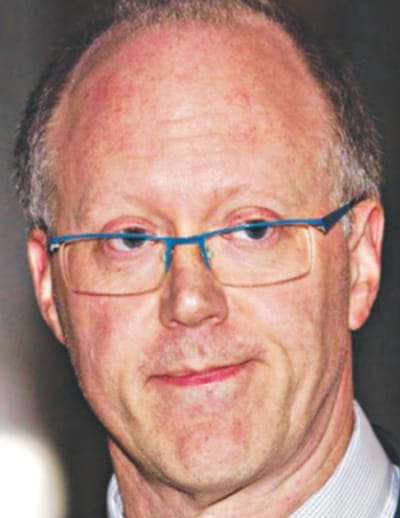BBC chief quits over abuse row

George Entwistle
BBC director general George Entwistle has resigned over airing of mistaken allegations of child sex abuse against a former leading politician.
The resignation came on Saturday, just two months after he got the job.
Meanwhile, BBC's governing board chief Chris Patten yesterday called for a radical overhaul of the world's largest broadcaster.
Patten, also a prominent political figure, said accepting Entwistle's resignation had made for one of the saddest nights of his public life.
He said the crisis had revealed a need for a "thorough, structural, radical overhaul" of the organisation, although he said he would not be quitting.
Entwistle's departure leaves the state-funded broadcaster in chaos as it struggles to restore trust in its journalism and battles the scandal surrounding Jimmy Savile, the late BBC television star now alleged to have been a prolific child sex offender.
The organisation issued a full apology on Friday, but early on Saturday Entwistle had to admit under questioning from his own journalists that he had not known in advance about the Newsnight report, weeks after being accused of being too hands-off over a previous scandal involving the same programme.
He resigned saying the unacceptable standards of the Newsnight film had damaged the public's confidence in the 90-year-old BBC.
"As the director general of the BBC, I am ultimately responsible for all content as the editor-in-chief, and I have therefore decided that the honourable thing for me to do is to step down," he said.
The 50-year-old was only appointed to the top job in September, making his leadership is the shortest in the BBC's history.
Entwistle succeeded Mark Thompson, set to take over as chief executive of the New York Times Co, in September and almost immediately faced one of the biggest crises in the history of the BBC, funded by a licence fee paid by TV viewers.
This was the revelation by rival broadcaster ITV last month that the late Jimmy Savile, one of the most recognisable personalities on British television in the 1960s, 70s and 80s, had sexually abused young girls, some on BBC premises.
Commentators described the crisis as one of the deepest in the BBC's 90-year history.
Entwistle was condemned for the BBC's slow response to the Savile furore and then lambasted after it emerged that Newsnight had axed a planned expose into Savile shortly after his death and that the broadcaster had gone ahead with tributes instead.
His appearance before a parliamentary committee provoked mockery, with one lawmaker saying he had shown a "lamentable lack of knowledge" of what was going on at his own organisation.
The knives were out for Entwistle on Friday after the BBC apologised for the mistaken allegation that an ex-politician, later identified on the Internet as a close ally of former prime minister Margaret Thatcher, had abused children.
The last straw came when he was forced to admit on the BBC morning news that he had not known - or asked - who the alleged abuser was until the name appeared in social media.
Politicians said Entwistle's decision was right because it appeared that under him the BBC, long affectionately known as "Auntie" and widely respected in many parts of the world, was systematically incapable of addressing its failings.
"It is vital that credibility and public trust in this important national institution is restored," Culture Secretary Maria Miller said in a statement. "It is now crucial that the BBC puts the systems in place to ensure it can make first class news and current affairs programmes."
The crisis at the BBC is the latest drama to hit the British media industry after two years of soul-searching sparked by a phone-hacking scandal at Rupert Murdoch's newspaper empire.

 For all latest news, follow The Daily Star's Google News channel.
For all latest news, follow The Daily Star's Google News channel. 



Comments